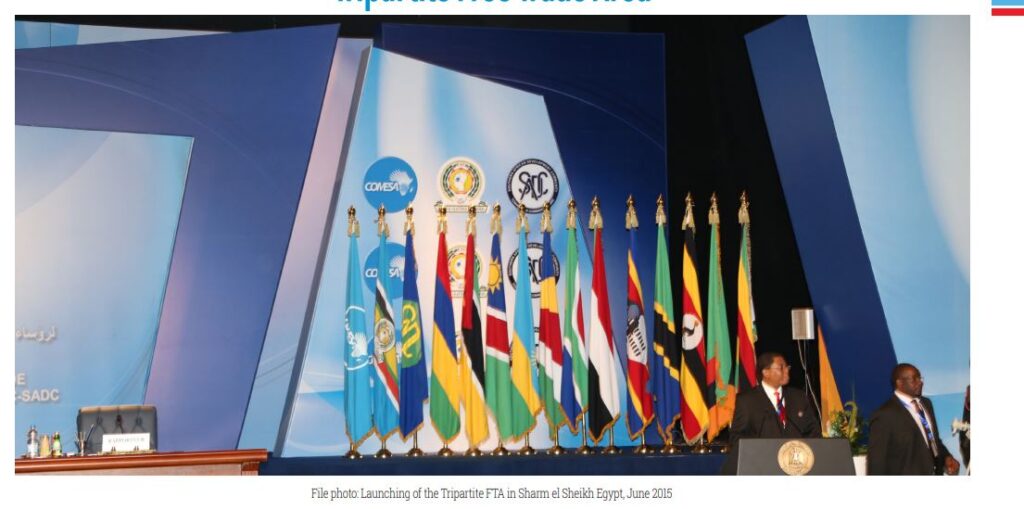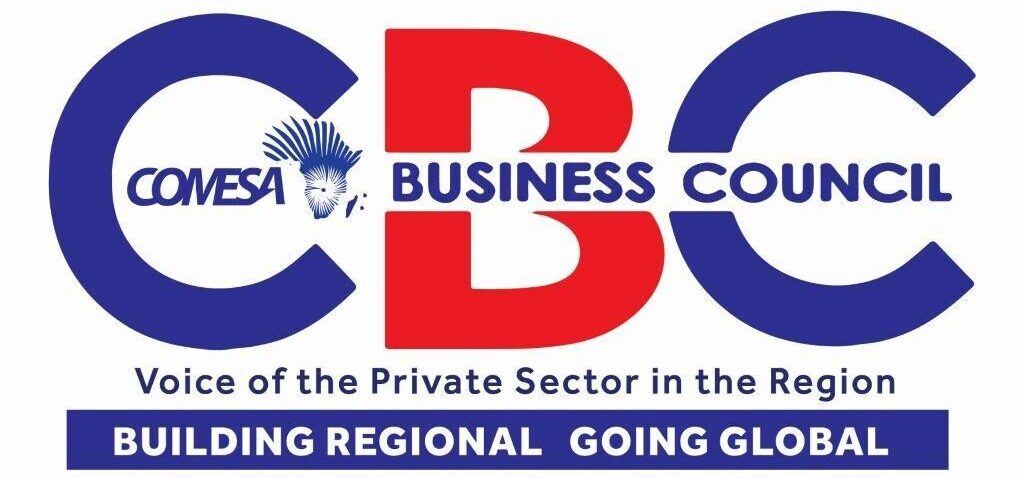The Council of Ministers of the Common Market for Eastern and Southern Africa (COMESA), East African Community (EAC) and the Southern African Development Community (SADC) have adopted legal instruments to implement the Tripartite Free Trade Agreement (TFTA) once it enters into force.
In its 5th meeting conducted virtually on 29 March 2023, the Ministers adopted instruments relating to trade and customs, namely the tripartite agreement on movement of businesspersons, annexes on elimination of import duties, trade remedies, rules of origin, dispute settlement mechanism and the TFTA protocol on competition policy.
Further the Council adopted the guidelines, manuals and working procedures developed on rules of origin and technical barriers to trade, which comprise of sanitary and phytosanitary matters and non-tariff barriers.
The other set of instruments adopted relates to road transport. They include Vehicle Load Management Agreement, Multilateral Cross Border Road Transport Agreement, Vehicle Load Management Model Law, Cross Border Road Transport Model Law, Road Traffic Model Law, Road Traffic and Transport Transgression Model Law, and Transportation of Dangerous Goods by Road Model Law. In adopting the road transport instruments, the Council applied the principle of variable geometry which allows Member States that are not ready to apply them, to do so when ready.
This will provide Council of Ministers room for discussions to continue at bilateral level while at the same time allowing those countries that are ready, to proceed with their implementation. With the adoption of these trade and transport facilitation instruments, focus now is on the ratification of the TFTA, which is currently short of three Member/Partner States signatures to achieve the 14 threshold to enable it to enter into force.
Currently, 22 Tripartite Member/Partner States have signed the Agreement out of which, 11, including, Egypt, Uganda, Kenya, South Africa, Rwanda, Burundi, Botswana, Namibia, Eswatini, Zambia and Zimbabwe have ratified it.
Keynote speakers at the opening of the meeting including COMESA Secretary General, Chileshe Kapwepwe, who is also the current chair of the Tripartite Task Force stressed the need for political will and commitment to ensure the successful- implementation of the TFTA. She appreciated the Government of Kenya for championing the tripartite agenda through its special envoy, the Minister of Trade, Hon Moses Kuria, who has already been to several regional Member/Partner States specifically to lobby for their ratification. “This commitment by Kenya has given us renewed hope that implementation and realization of the aspirations of the Tripartite will be soon,” she said.
The African Development Bank, a key financier to the Tripartite programme, through its representative at the meeting Ms. Leila Mokaddem, welcomed the finalization of the instruments as they will pave way for the implementation of the TFTA. “Time is of essence,” she stressed. “Let us not lose this opportunity. Let us do what we can to accelerate the implementation of the TFTA.
The ratification of the agreement by those countries that have not done so is key.” The European Union through its Head of Delegation to Zambia and COMESA, Mr. Jacek Jankowski, informed the ministers that EU had contributed 18 million euros to address obstacles towards an integrated and liberalised road transport market in the eastern and southern African region.
“We are elated to note that through the support of the EU towards the Tripartite Transport and Trade Facilitation programme, seven transport facilitation instruments will be presented for adoption in this session,” he said. He added that EU was ready to share lessons from its own process of economic integration, and, to continue supporting infrastructural investment in Africa in its new Global Gateway Strategy.
The Council adopted the decision to establish a joint tripartite and development partners forum for mobilization of resources to ensure sustainability of the projects and activities. The TFTA was launched in 2015 and brings together 29 countries to create a single market for the COMESA-EAC-SADC Tripartite region. It is anchored on three pillars: market integration, industrial development and infrastructure development.
Source:e-COMESA Newsletter Issue #:713
